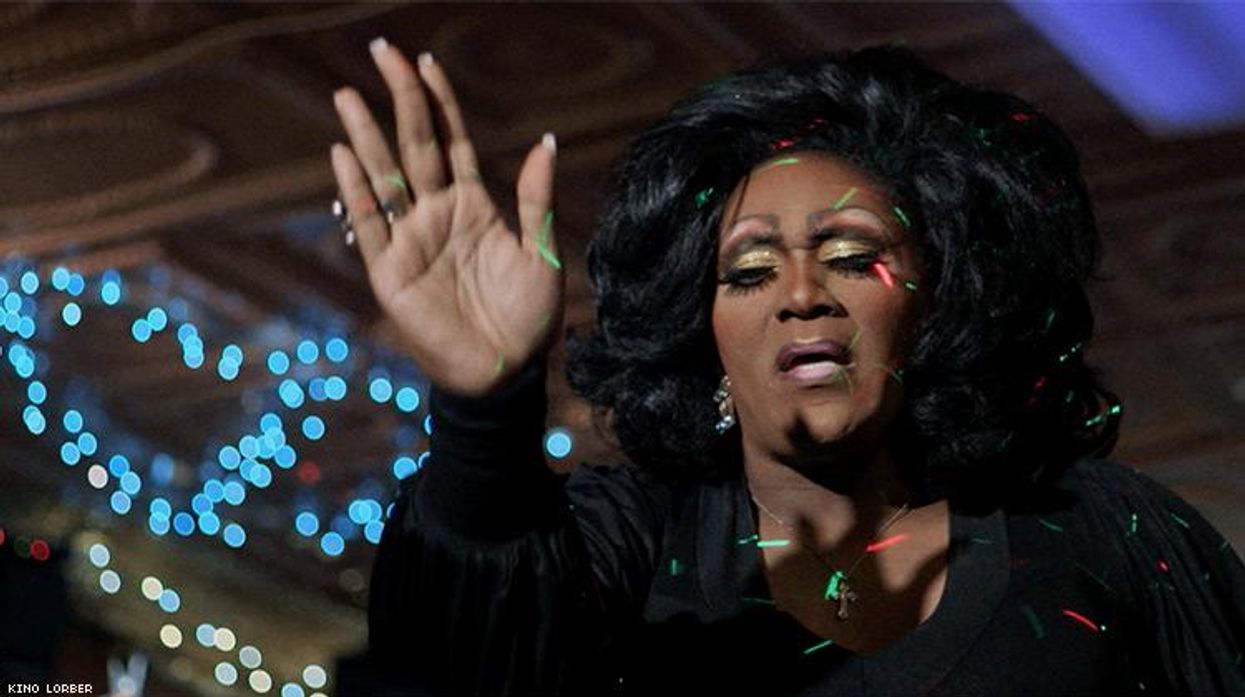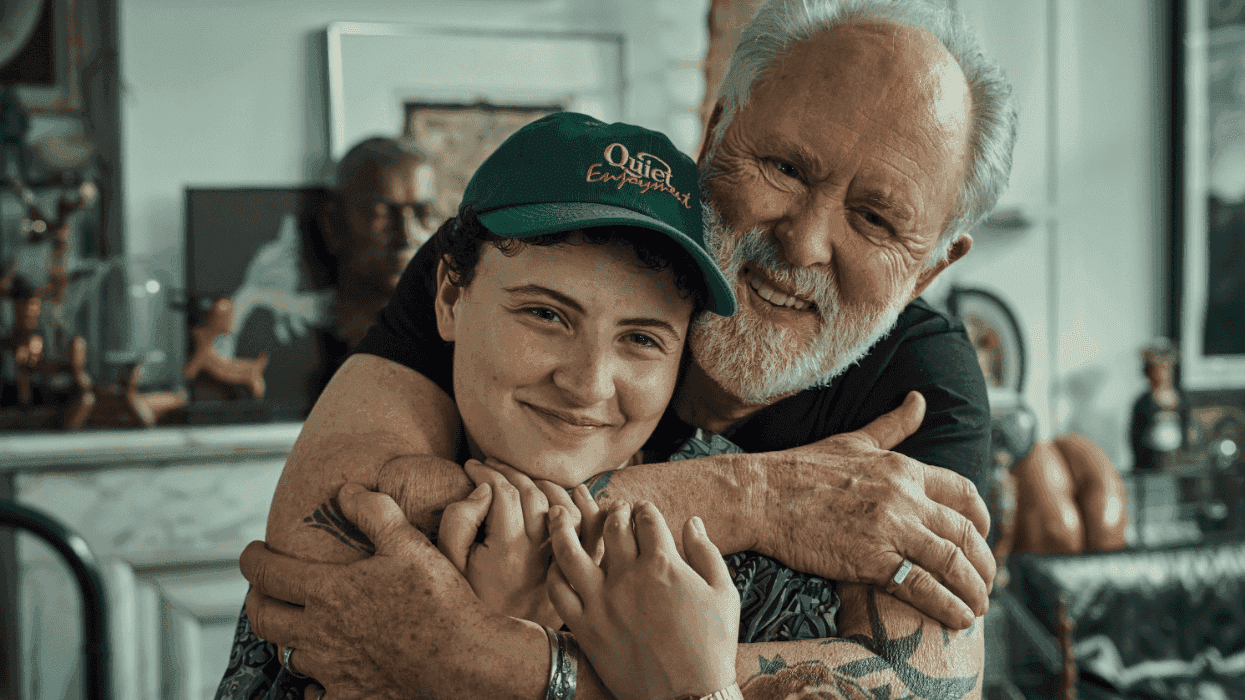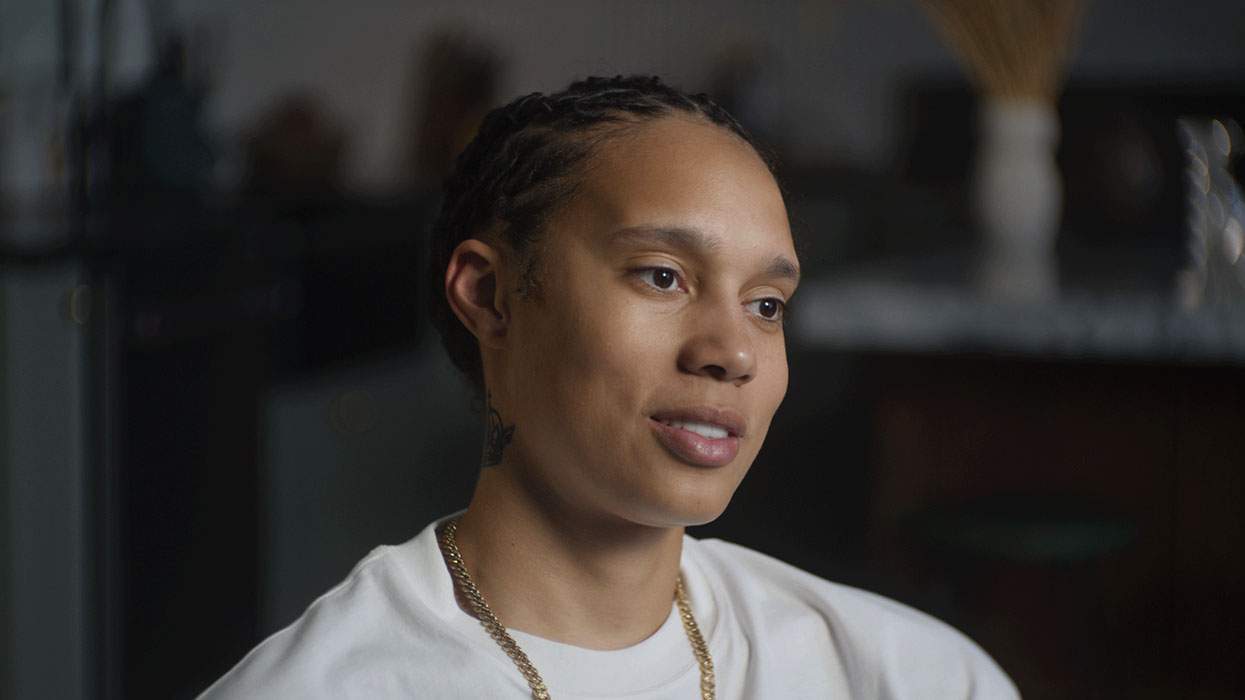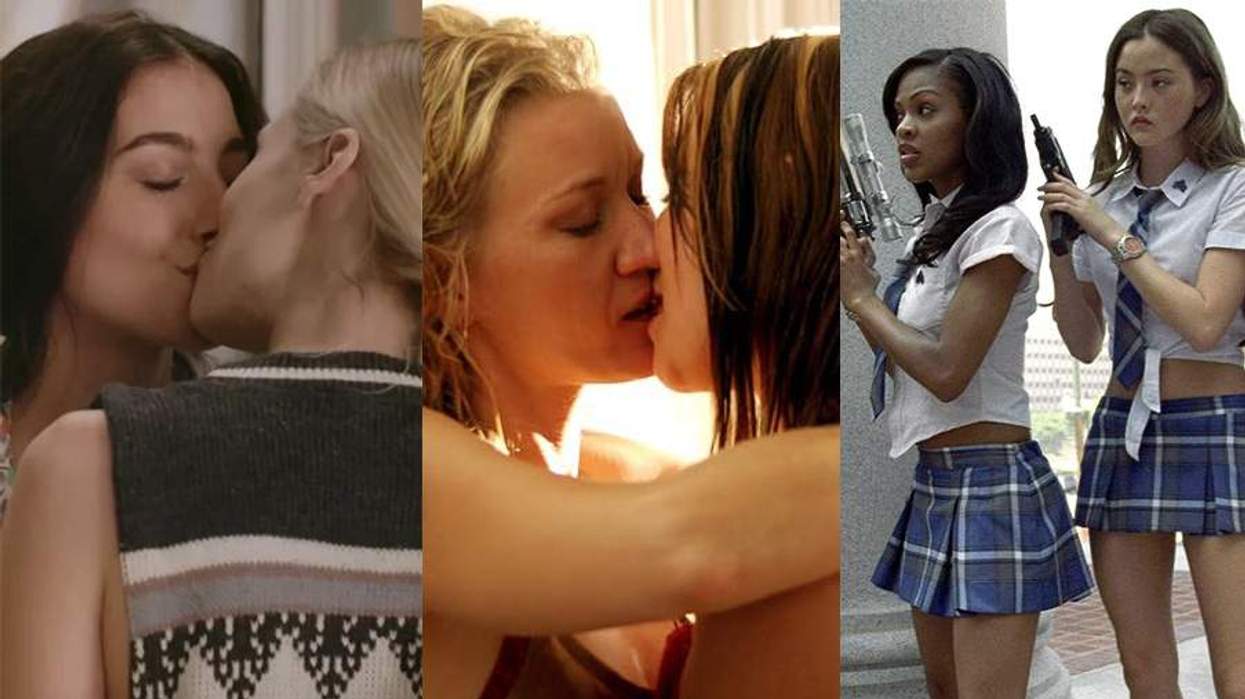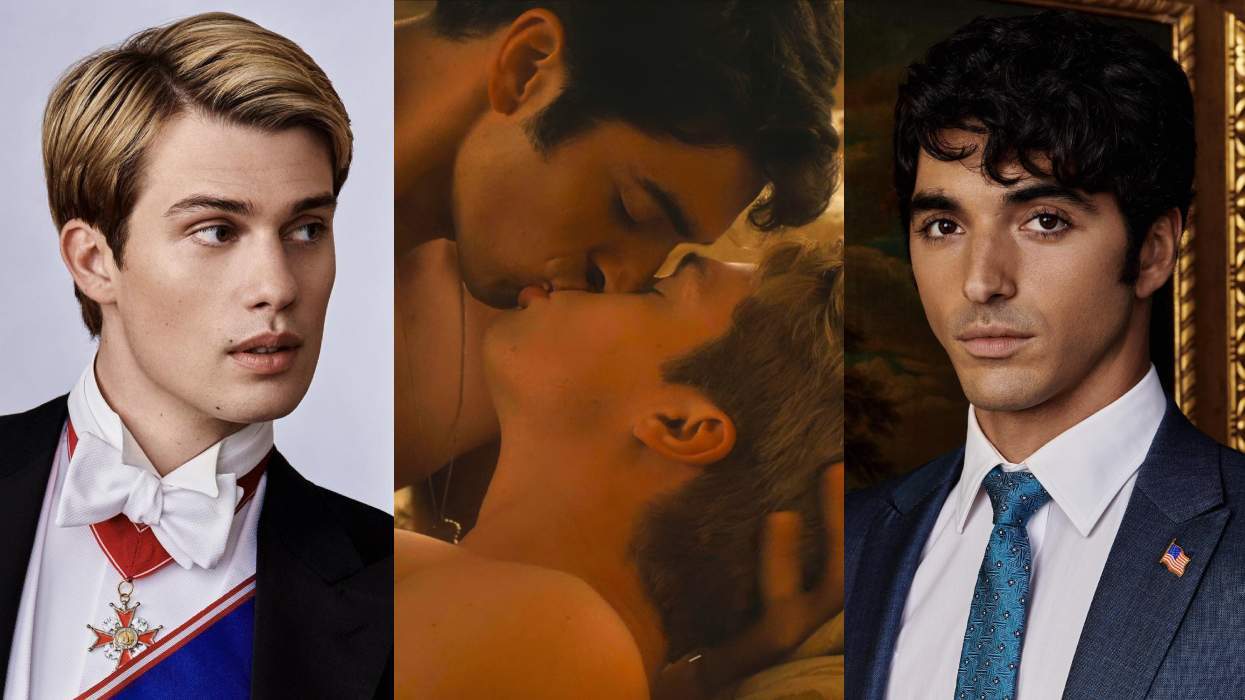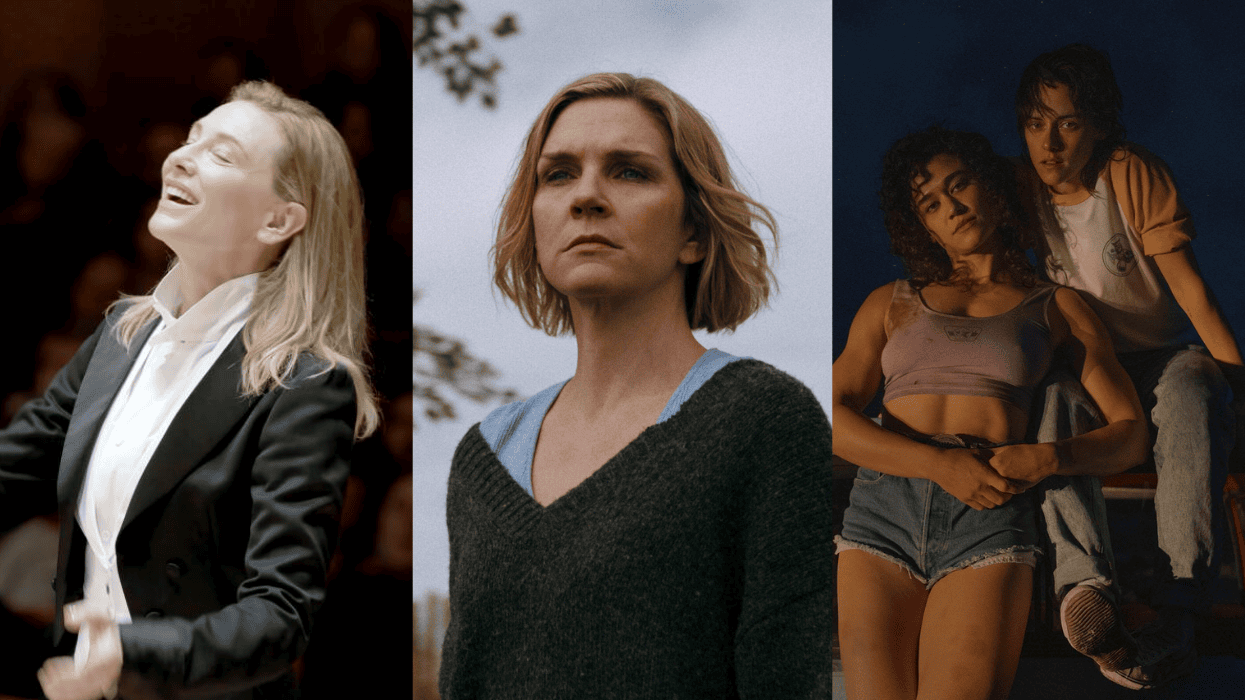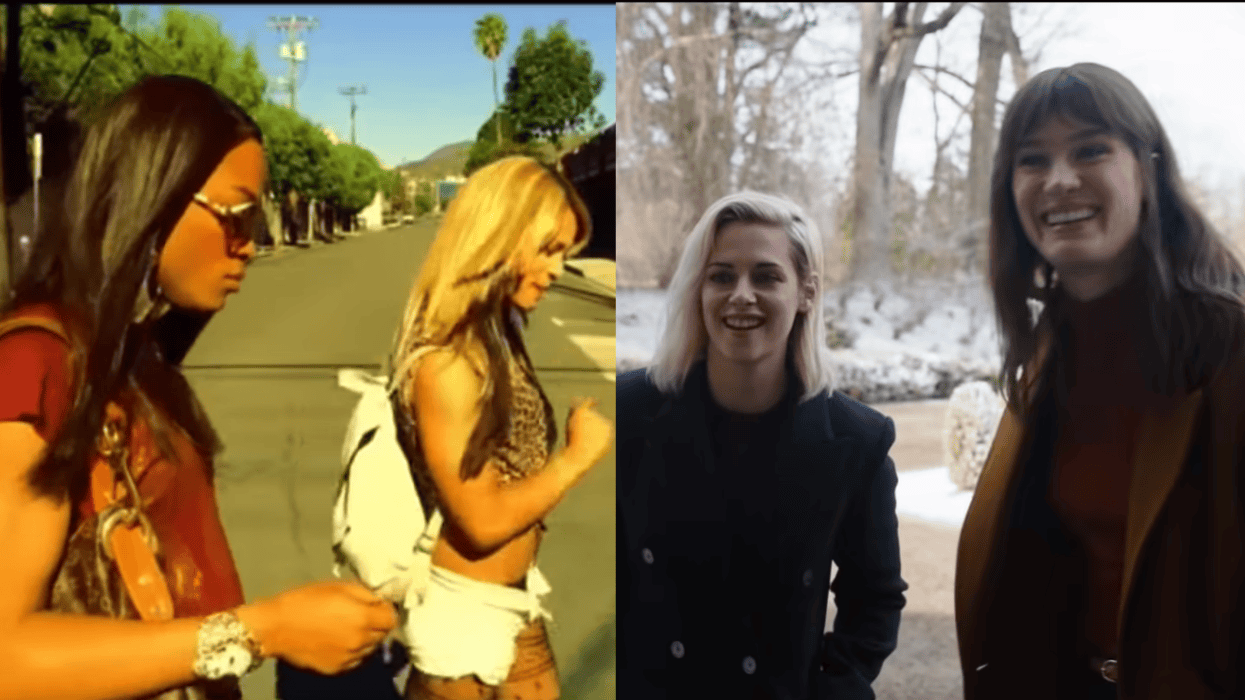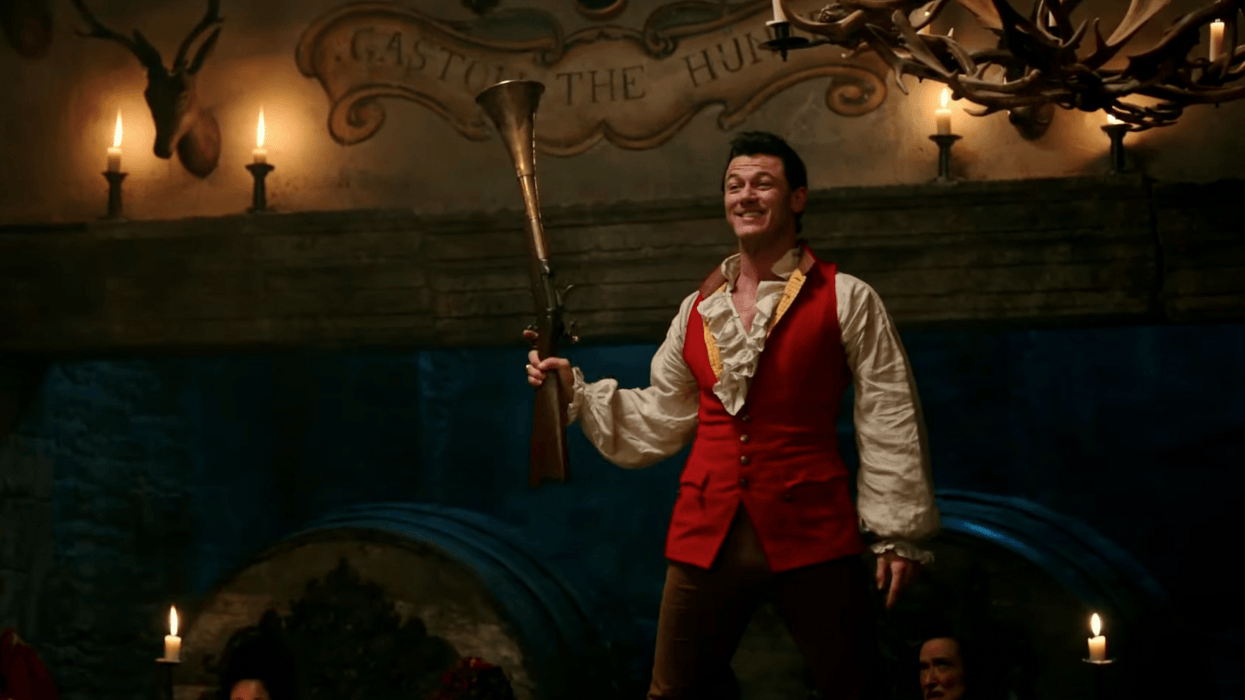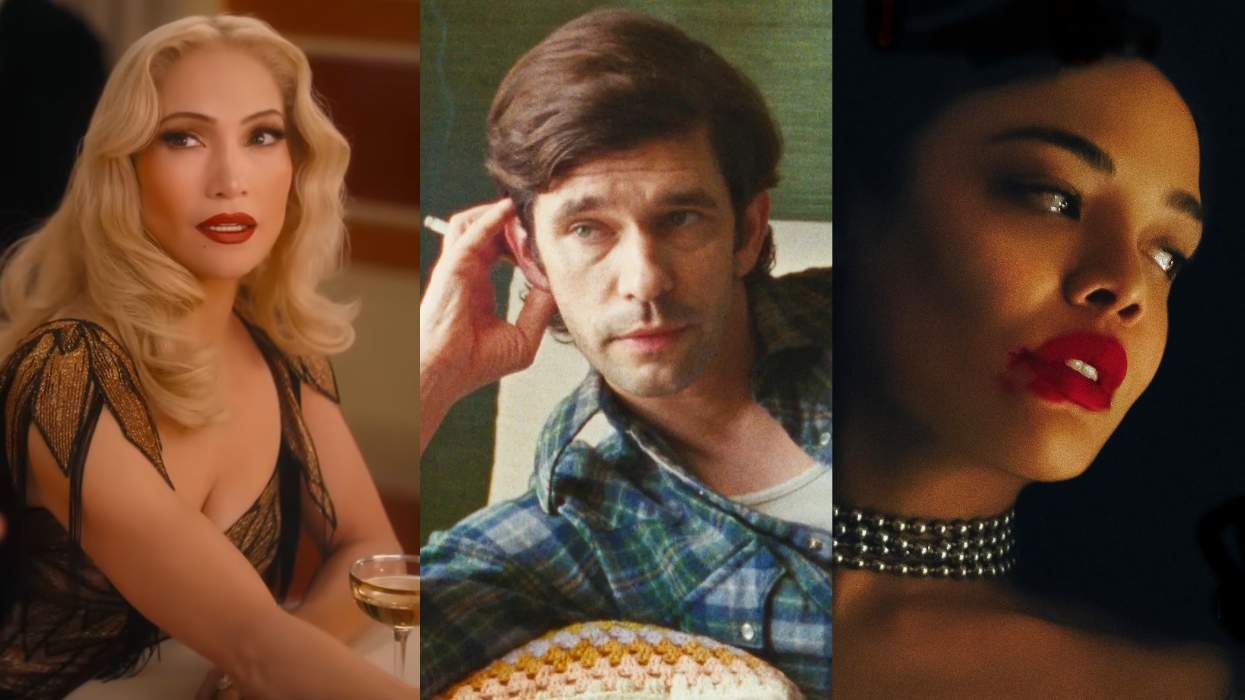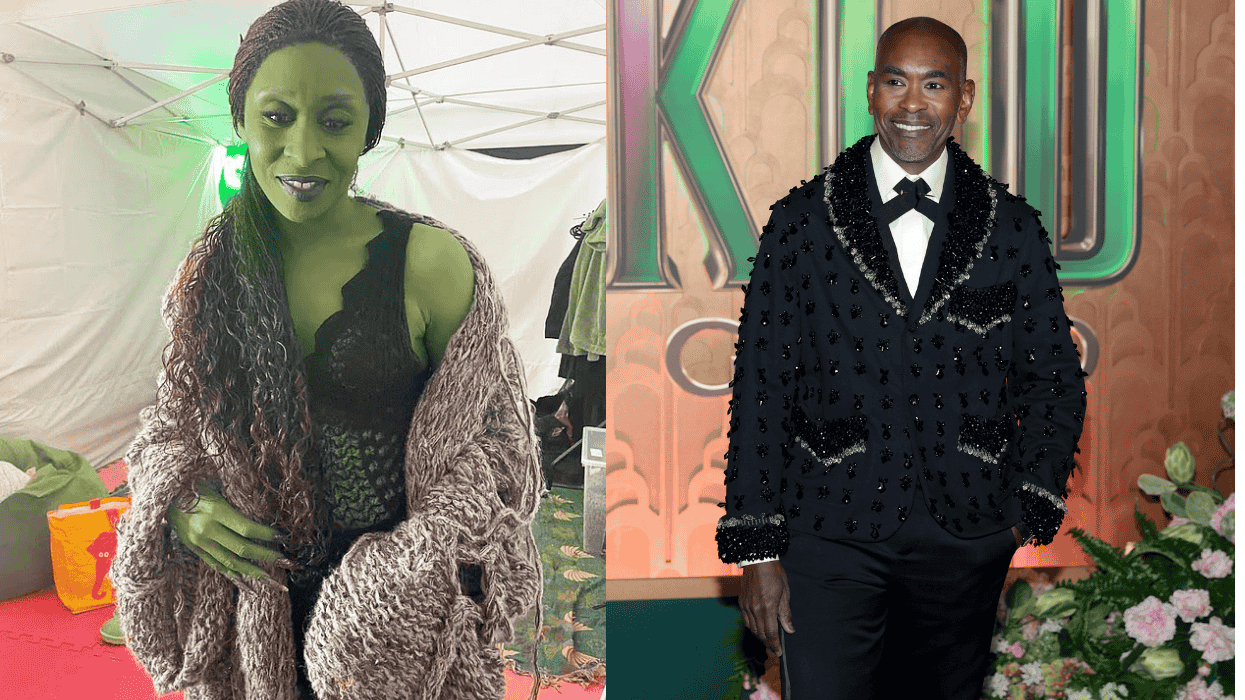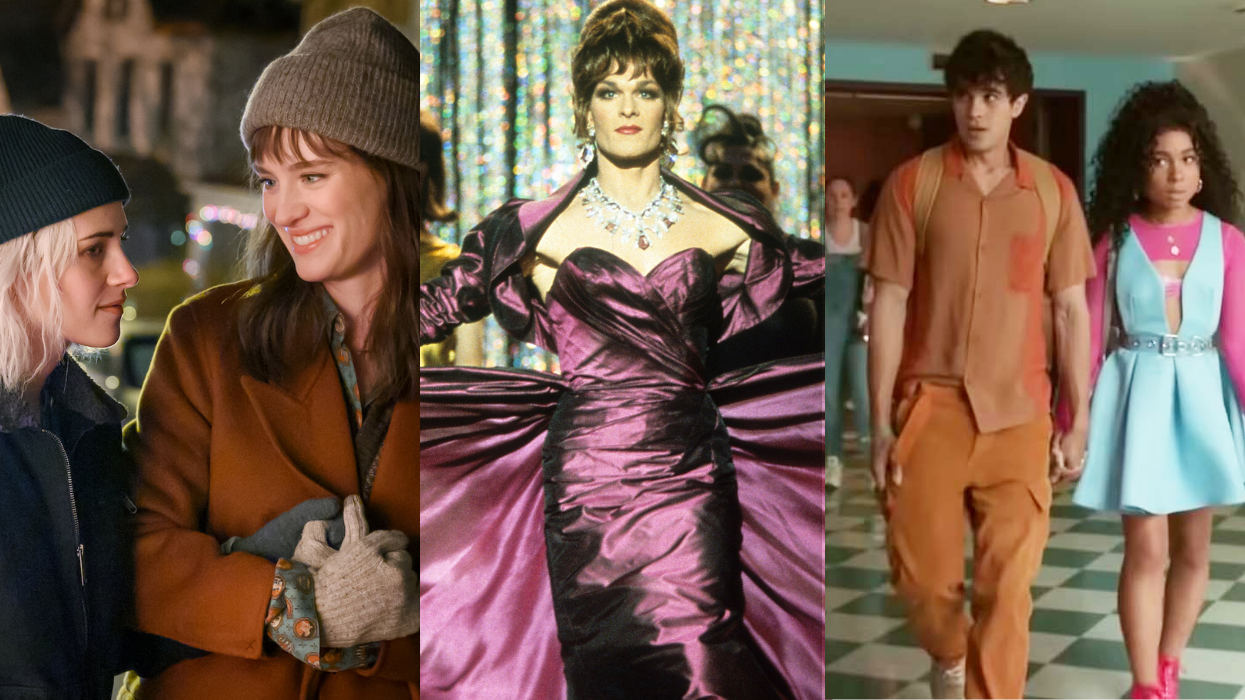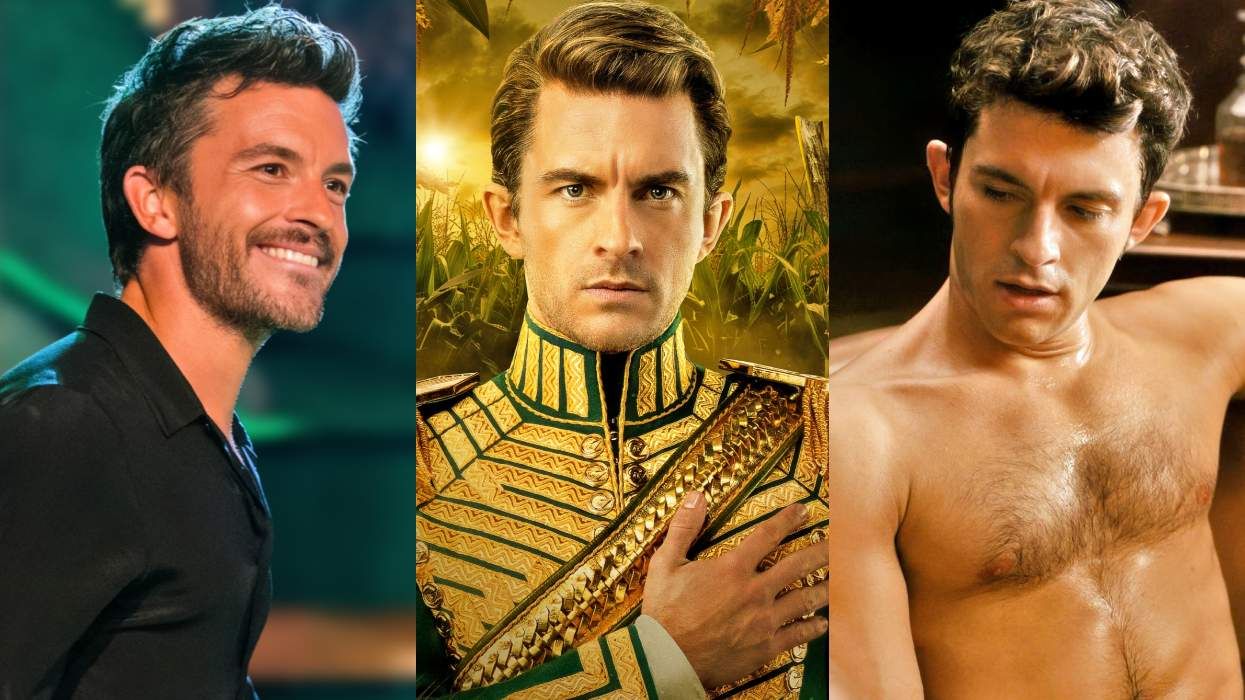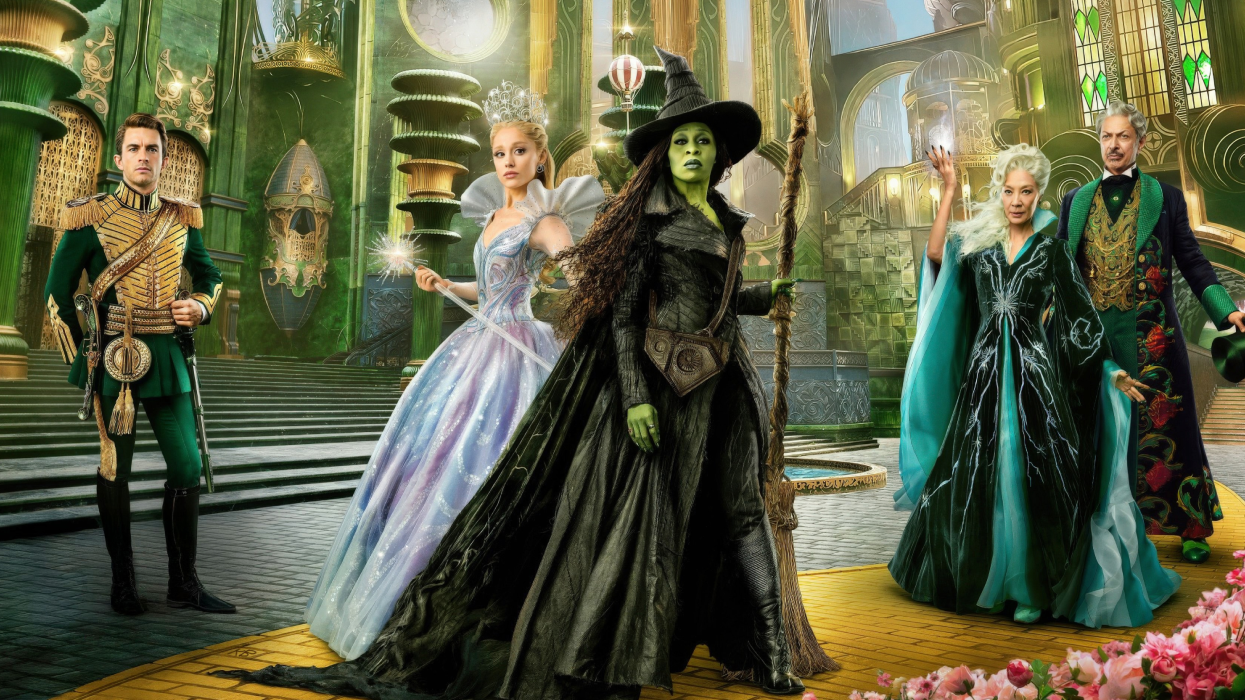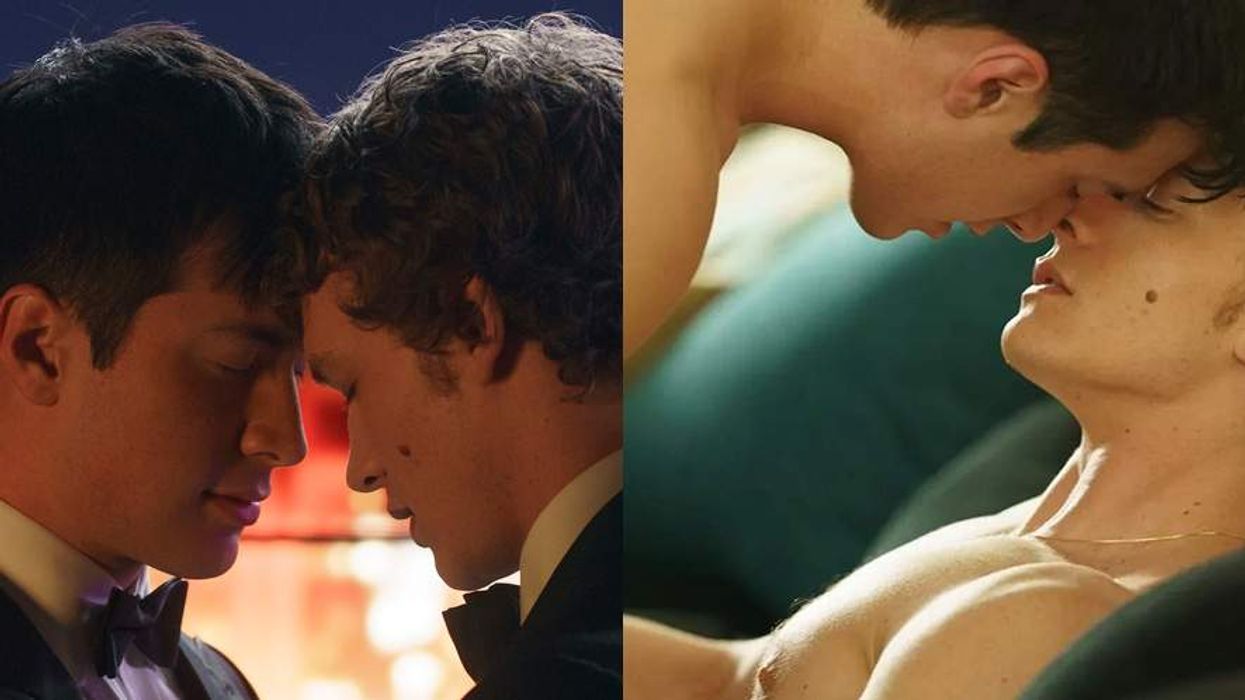Michael Palmieri and Donal Mosher found themselves in Eureka Springs, Arkansas shortly after the largely Christian town voted, in May 2015, to uphold an ordinance outlawing discrimination against the queer community. They were commissioned to produce a documentary short about the win for equality. Throughout that process however, they quickly came to realize there was so much more about the town they wanted to cover. While completing the short film, they also decided to expand their coverage into the feature-length doc The Gospel of Eureka.
Made over the course of three years, the film chronicles a town paradoxically home to vibrant LGBTQ+ and Christian communities that flourish alongside each other, especially at local drag bar Eureka Live and the Passion Play, an annual reenactment of Christ's resurrection. Narrated by the iconic Mx Justin Vivian Bond, it hits theaters Friday in New York and the Los Angeles area March 8.
Ahead of the film's release, Out spoke to Palmieri and Mosher about faith and sexuality, small town queer life, and the enduring magic of drag in all forms.
What is your own relationship to religion and sexuality and how did that affect making the film?
Palmieri: We're both gay men, so the initial interest was the passing of Ordinance 2223. We became more interested when we realized pretty much everyone there is Christian. It was challenging to our initial thoughts about religion's place in, at least, our lives. I wouldn't say personally that religion was really a net positive or negative growing up. I grew up Catholic, but moved away from the church. It had less to do with being gay, but I'm sure that was an element of it.
Mosher: I grew up in North Carolina in a Pentecostal church. I went through the difficult experience of being gay in a conservative church. At this point, I wouldn't call myself a "believer," but I acknowledge there's a certain metaphorical framework from my upbringing shaping the way I look at the world. I left the church, but it hasn't necessarily left me. When I was young, I felt I had to leave the region I grew up in, leave faith behind, and try to reshape the world for myself. Eureka was magical because people have a choice to stay or go, to redefine their faith for themselves. However you feel about religion, the freedom to engage or not engage with it is special.
The reigning narrative of faith is that it's constantly at odds with sexuality. How do you hope the film addresses that?
Mosher: If you're a young queer person having that conflict, the film might give you a variety of alternatives and say you can have your sexuality, you can be flamboyant or not, and still be able to redefine faith that satisfies your spiritual needs. And for more conservative audiences, hopefully the film can open a view into the queer world beyond secular and sexualized imagery and show the complexity of spiritual beliefs.
Palmieri: We're hoping what you think you understand about people in their communities is enriched by this film. I think everyone in Eureka upends expectations. It's all for the end game of working together because they have only each other to get by. We hope people see there's a lot more than meets the eye to everybody, especially where faith is concerned.
Coming from urban areas, what did making the film teach you about queer life in small towns?
Mosher: I grew up in a very small, rural place, but the lesson in Eureka for me is that there has been a great deal of quiet progress in rural towns that's not getting illuminated. At this moment, too, among young citizens in the rural South, there's a great deal of resistance and a sense of community that didn't exist when I was younger. The radical energy that has been attributed to urban centers like San Francisco and New York, those centers don't need radical energy in the same way anymore. There's more oppression so there's more resistance in the South, I think.
What relationship did you want to show between performance at Eureka Live and in the Passion Play?
Mosher: We wanted to show that each community performs its identity in ways that are remarkably similar and that similarity is not usually addressed.
Palmieri: Because the Passion Play is done to a lip-synched soundtrack, the comparison between it and the drag shows is unmistakable. They're both doing drag in a way. That's not to say people who perform in the Passion Play ever think of what they're doing as drag, but we're making those connections because there's actually something really incredible about how similarly these performances play out. The important thing is there are moments in each community's performance where they transition into something else entirely. It's a space of the holy. They're both doing profound work in a way.
Mosher: I think the Christian audience of the Passion Play is going for essentially the same experience that I go to a drag show for. Not the comedy and the satire of drag, but for these little, magical moments where what was cheap and gaudy becomes profound and transcendent. When I'm at a drag show, the community unifies around these transcendent moments. The Christian audience is having the same experience.
The Gospel of Eureka will show in New York from February 8-14 and in the Los Angeles area from March 8-14. Dates for other cities are available here.


